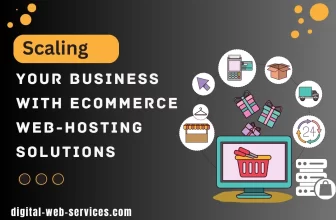
A brief summary of the industry is frequently included in the business description. Discuss the current state of the industry and also future prospects when discussing it. You should also include information on all of the industry’s numerous marketplaces, as well as any new goods or advancements that will help or harm your company.
Many entrepreneurs still assume that if they construct a superior product, the world will come knocking. A decent mousetrap is essential, but it’s only one part of the solution. It’s also crucial to meet the demands of retailers and shareholders. Marketers are looking for feasible markets and clients’s interests as well. Value is used to determine when they will be able to cash out or how accurate the financial forecasts are.
Entrepreneurs and corporate executives need a detailed, well-thought-out business strategy to succeed. You will never encounter a more difficult writing task than the drafting of a business plan, whether you are beginning a new firm, seeking extra finance for a form of new products, or suggesting a new action in a corporate division.
Purpose of writing a business plan
A strategic plan is used to assist in the management of an organization by establishing goals, how they’ll be accomplished, and when they will be achieved. The strategy will also serve as a summary of the company’s mission, why something exists, and whether it intends to go. If you are still confused about your business plan, here are top profitable business plans in India which you might consider.
The company plans as a benchmark against which to measure development.
- To establish business milestones.
- To better understand your competition.
- To prove that you’re serious about your business.
- To assess the feasibility of your venture.
- To document your revenue model.
- To determine your financial needs.
- To attract investors and partners.
- To reduce the risk of pursuing the wrong opportunity.
- To force you to really know your market.
Business plan in entrepreneurship
This section outlines the stages involved in creating a business strategy. This is the bare minimum of information you’ll need to manage your business properly and will be compelled to present to lenders and investors. Read through each stage and accomplish the duties listed there.
Then, depending on the type of your firm, you may wish to include additional information that prospective investors and lenders may find useful. Examples will be provided when feasible to offer you more explanation on how much you should supply. A ten-step procedure for creating a business strategy is outlined below.
- Begin with a Summary
- Describe Your Business, Goals and Objectives
- Analyze Your Market
- Describe Your Product/Service
- Describe Your Management Organization
- Describe Your Operations
- Summarize Your Financial Needs
- Determine Your Proposed Financing
- Outline Your Plan
- Considerations
Conclusion
Too many company strategies are prepared from the perspective of the producer, the third stakeholder. They extol the proposed product’s or service’s theoretical underpinnings or creativity in flattering terms and at length. They overlook the marketplace and the investor, two key stakeholders that ensure the venture’s financial sustainability.
A small firm’s success or failure is determined by its business strategy. A well-thought-out strategy lays out a clear path for the future, compels you to consider the viability of a business concept, and may help you get a better grasp of your company’s finances and competitors.
Frequently Asked Questions (FAQs)
Q1. What are the seven elements of a business plan?
- Executive summary
- Business description and strategy
- Industry analysis
- Market analysis
- Organization management
- Financial projections
- Finacial request
Q2. Why do we need to make a business plan?
A strategic plan is used to assist in the management of an organization by establishing goals, how they’ll be accomplished, and when they will be achieved. The strategy will also serve as a summary of the company’s mission, why something exists, and whether it intends to go.
Q3. What is meant by developing a business plan?
A brief summary of the industry is frequently included in the business description. Discuss the current state of the industry and also future prospects when discussing it. You should also include information on all of the industry’s numerous marketplaces, as well as any new goods or advancements that will help or harm your company.
Q4. What are the 3 main components of a business plan?
- Executive summary
- Market research
- Financial documents
Q5. Who should develop a business plan?
The person who initiated the idea and the process of the plan should be the one to develop one.
Digital Web Services (DWS) is a leading IT company specializing in Software Development, Web Application Development, Website Designing, and Digital Marketing. Here are providing all kinds of services and solutions for the digital transformation of any business and website.










